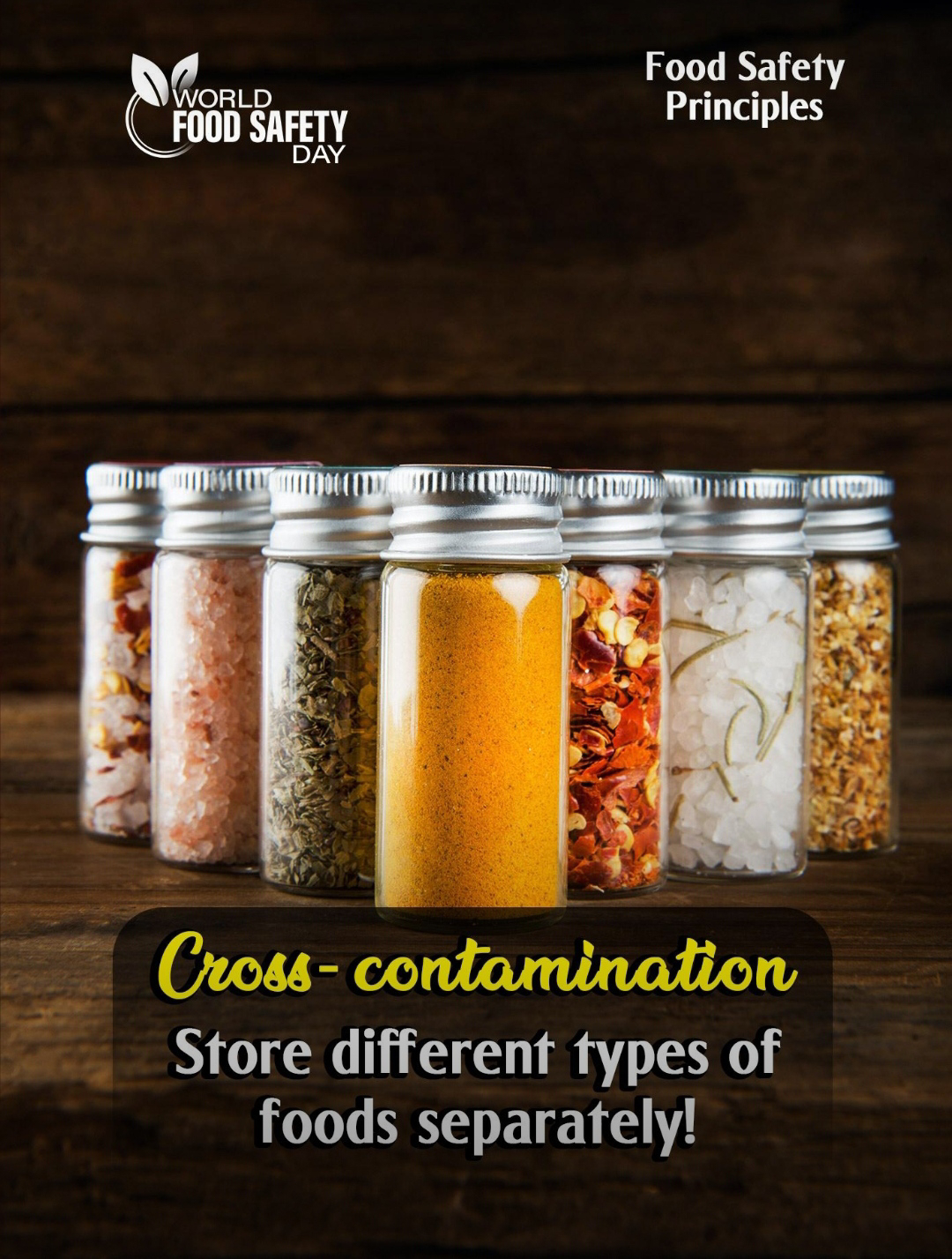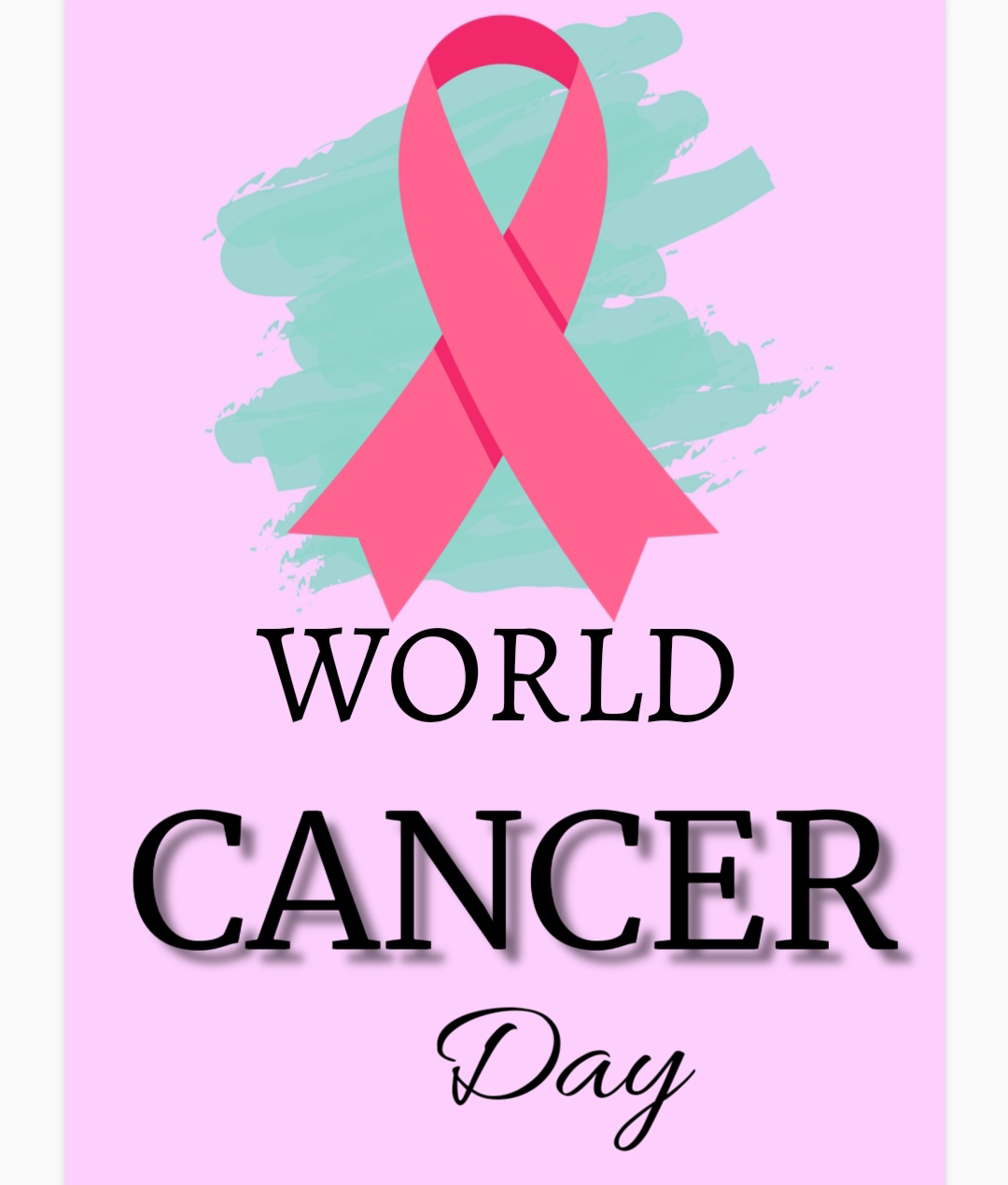𝙒𝙤𝙧𝙡𝙙 𝙁𝙤𝙤𝙙 𝙎𝙖𝙛𝙚𝙩𝙮 𝘿𝙖𝙮
The first -ever World Food Safety Day, adopted by the United Nations General Assembly in December 2018, will be celebrated on 7 June 2019 under the theme "Food Safety, everyone's business" . Food safety has a critical role in assuring that food stays safe at every stage of the food chain - from production to harvest, processing, distribution, all the way to preparation and consumption.
A healthy diet has been scientifically proven to provide numerous health benefits, such as reducing your risk of several chronic diseases and keeping your body healthy.
However, making major changes to your diet can sometimes seem very overwhelming.
Instead of making big changes, it may be better to start with a few smaller ones.
This article discusses 25 small changes that can make a regular diet a little bit healthier.
The pace at which you eat influences how much you eat, as well as how likely you are to gain weight.
In fact, studies comparing different eating speeds show that fast eaters are up to 115% more likely to be obese than slow eaters.
• Your appetite, how much you eat and how full you get is all controlled by hormones. These hormones signal your brain whether you’re hungry or full.
Studies have confirmed this, showing that eating slowly may reduce the number of calories you consume at meals and help you lose weight. Eating slowly is also linked to more thorough chewing, which has also been linked to better weight maintenance.
Therefore, simply by eating slower and chewing more often, you can reduce your risk of eating too much and gaining excess weight.
You can easily make your diet a bit healthier by choosing whole grain bread in place of traditional refined-grain bread.
• As opposed to refined grains, which have been linked to many health issues, whole grains have been linked to a variety of health benefits, including a reduced risk of type 2 diabetes, heart disease and cancer. They are also a good source of fiber, B vitamins and several minerals, such as zinc, iron, magnesium and manganese.
There are many varieties of whole-grain bread available, and many of them even taste better than refined bread.
Just make sure to read the label to ensure that your bread is made with whole grains only, not a mixture of whole and refined grains. It’s also preferable that the bread contains whole seeds or grains.
• It has been strained to remove its excess whey, which is the watery part of milk. The end result is a yogurt that is higher in fat and protein than regular yogurt.
In fact, it contains up to three times the amount of protein found in the same amount of regular yogurt, or up to 9 grams per 100 grams. Eating a good source of protein helps you feel fuller for longer, helping you manage your appetite and eat fewer calories overall.
Furthermore, since Greek yogurt has been strained, it contains fewer carbs and lactose than regular yogurt, making it suitable for those who follow a low-carb diet or are lactose intolerant.
Simply replace some snacks or regular yogurt varieties with Greek yogurt for a hefty dose of protein and nutrients.
Just make sure to pick the non-flavored varieties, as flavored ones may be packed with added sugar and other unhealthy ingredients.
• There are two important strategies to employ when you go grocery shopping: make your shopping list ahead of time and don’t go to the store hungry.
Not knowing exactly what you need makes room for impulse buying, while hunger can further exacerbate your impulses.
To make sure you don’t give in to your impulses, plan ahead and write down what you need beforehand.
By doing this and sticking to your list, you will not only buy healthier items but also save money and have healthier foods around the house.
• Drinking enough water... The topmost thing is drinking sufficient amount of water.
Studies also show that drinking water before meals can reduce appetite and calorie intake during the subsequent meal in middle-aged and older adults. People who drink mostly water have been shown to consume 200 fewer calories per day, on average, than those who drink other beverages.
Good food and bad food :-
• Junk food may be the reason behind your fatigue: Although junk food and fast food makes you feel full and satisfied, they lack all the necessary nutrients like proteins and carbohydrates to keep your body energized and healthy.
• Junks food may lead to depression in teenagers: A lot of hormonal changes take place in teenagers which makes them susceptible to mood swings and behavioural changes. And a healthy diet plays an important role in maintaining that hormonal balance. Because junk food lack those essential nutrients, the likelihood of teenagers to suffer from depression is increased by 58 percent.
• It impairs digestion: Those who are addicted to fatty junk food are bound to have digestive problems like gastroesophageal reflux disease (GERD) and irritable bowel syndrome (IBS). That’s because junk food is deep fried. So, the oil from the junk food gets deposited in the stomach causing acidity. They cause irritation of the stomach lining because they are too spicy, and they also lack fibre which is important for proper digestion.
• It causes fluctuations in blood sugar levels: Junk food is high in refined sugar which puts your metabolism under stress. Refined sugar causes the pancreas to secrete more amount of insulin in order to prevent a drastic spike in your blood sugar levels. Because junk food lacks sufficient levels of good carbohydrates and proteins, the levels of blood sugar drop suddenly after you eat. This makes you feel irritable and further increases you craving for more junk food.
• It affects the brain function: A study published in the journal Brain, Behavior, and Immunity shows that one week of eating junk food is enough to trigger memory impairment in rats. Recent research suggests that bad fats (trans fats) from junk food tends to replace healthy fats in the brain and interferes with its normal signalling mechanism. Studies in animals have also shown that fats from junk food slow down the ability to learn new skills...
........ 𝙔𝙖𝙨𝙝𝙞𝙡𝙖 𝘽𝙖𝙧𝙣𝙬𝙖𝙡
This blog post is part of the blog challenge ‘Blogaberry Dazzle’ hosted by Cindy D’Silva and Noor Anand Chawla.





Comments
Really very nice content
We are what we eat!! Trying hard to eat healthy.
- Swarnali Nath
Mayuri/Sirimiri
We need to take care & these aspects should be applied seriously for our food’s safety & our good health. Im glad i stopped by this post & learnt so much i need to change.
We need to take care & these aspects should be applied seriously for our food’s safety & our good health. Im glad i stopped by this post & learnt so much i need to change.